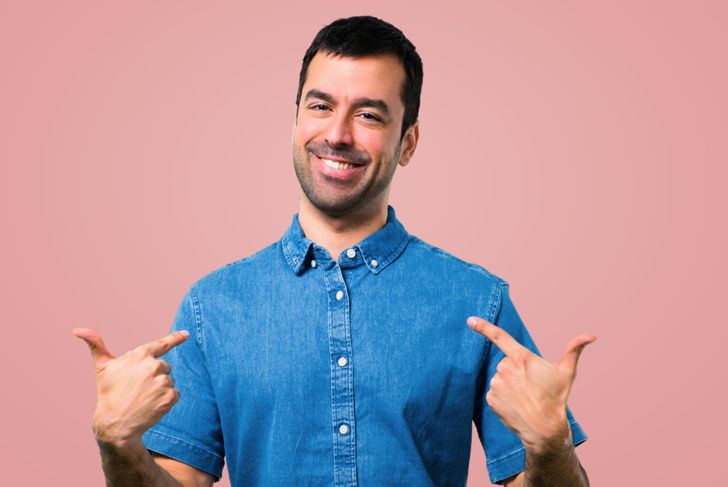Narcissistic personality disorder (NPD) is classified by the Diagnostic and Statistical Manual of Mental Disorders (DSM-V) by patterns of grandiosity, lack of empathy, and a need for admiration. Although common, limited research on this condition exists.NPD belongs to a cluster of other disorders, including borderline, antisocial, and histrionic personality disorders. Although they share many traits, overt and covert narcissists are different. Identifying a covert narcissist is difficult to do.
The Closet Narcissist
A covert narcissist is sometimes called a closet narcissist or vulnerable narcissist. They lack the aggression that many people associate with narcissism and are more prone to depression. Covert narcissists may seem anxious, shy, or humble, and while they often undervalue themselves, they wonder why others do not truly appreciate them.
Motivation
Covert narcissism qualifies as a personality disorder because covert narcissists still believe they are entitled to admiration and superior to other people. They lack empathy and expect special treatment and often act as a martyr or a victim. While they may donate to charity or appear to care for others, they are often motivated by a need for recognition, pride, or power.
Overt vs. Covert
Covert narcissists are more subtle than overt narcissists. An overt narcissist actively seeks admiration and may blatantly exploit others to serve their needs. In contrast, covert narcissists act withdrawn, passive-aggressive, anxious, or hypercritical as they feel they are not getting the appreciation they deserve. They often envy others and feel they deserve what others have.
Diagnosis
Diagnosing narcissistic personality disorder and therefore covert narcissism in a research setting is much different than diagnosing it in a clinical setting. Researchers use instruments like the Narcissistic Personality Inventory, while clinicians focus more on an in-depth clinical interview. People with NPD often show signs when interacting with people of authority and describing themselves in relation to others. Clinicians also take into account how the individual makes them feel. Narcissists often either flatter the person interviewing them or demonstrate feelings of low self-worth.
Superior Behaviors
A covert narcissist exhibits superior behaviors, though in a different way than an overt narcissist. In some social situations, covert narcissist might roll their eyes, sigh, yawn, and be otherwise inattentive to others. When speaking, they are often critical and judgemental. They are poor listeners because they find so many things unworthy of their attention and label things they are not interested in as stupid or boring. Although they may appear smug, they engage in this behavior to hide their vulnerabilities.
Relationships with Others
Some covert narcissists are highly sensitive and have a tendency to handle criticism poorly. One of the distinguishing features of a narcissist is a false sense of superiority or the idea that they are special and misunderstood. A covert narcissist may act aloof when faced with negative feedback and dismiss it or withdraw completely. People with this personality disorder cannot connect with people on a real level for fear that their inadequacies will be exposed.
Living with a Covert Narcissist
Family and friends who have a relationship with a covert narcissist may find it challenging. Covert narcissists need control and dismiss the concerns of others. They covet positive recognition and may have a difficult time celebrating the accomplishments of others. Many people in relationships with covert narcissists report self-doubt and not trusting their own perceptions due to psychological and emotional abuse.
Abusive Behaviors
The abusive behaviors of a covert narcissist are quite damaging. Because they are so sensitive to criticism, they use many tactics to externalize blame and shift the responsibility to their partner. These tactics include manipulation, gaslighting, and dominating the relationship. They may use silent treatment or verbally and emotionally abuse their partners by belittling or humiliating them.
Treatment and Challenges
Treating a covert narcissist is challenging. They have a strong desire for public admiration and recognition that their public and private personas are very different. There is no medication for people with NPD, and the only established treatment is long-term psychotherapy. Many people with NPD also benefit from treating other symptoms, like depression, anxiety, and impulse control. Some patients benefit from mood stabilizers and antidepressants.
Prognosis
The prognosis for a covert narcissist depends on the level of functioning and any other disorders the person has. Mood and substance abuse disorders are particularly difficult to overcome and can bring more hostility and aggression.NPD has a higher rate of suicide than other personality disorders, and though treatment is challenging, it can be effective.

 Home
Home Health
Health Diet & Nutrition
Diet & Nutrition Living Well
Living Well More
More




















